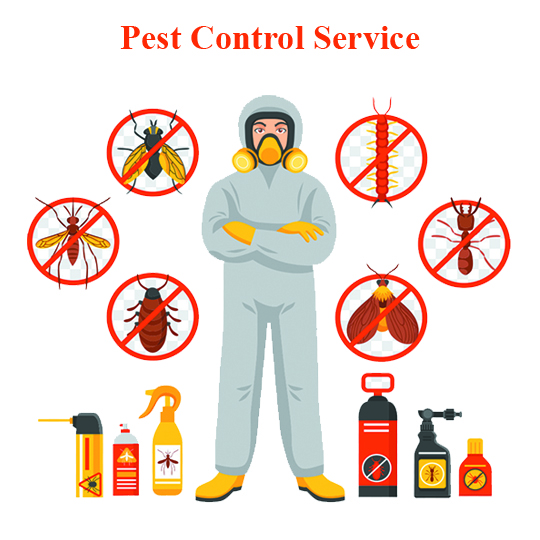Dealing with a infestation invasion can be a property owner's worst nightmare. Whether it’s termites parading through your home, lice disturbing your quiet sleep, or mice darting in the walls, a sudden invasion can leave you feeling overwhelmed and desperate for a fix. Knowing how to properly handle and prevent these problems is important for maintaining a safe and pleasant living environment.
In this definitive guide, we will examine different strategies for ensuring your home without pests year-round. From spotting common household pests and understanding how to eliminate them, to debunking pest control myths and highlighting the advantages of professional services, we will provide you with the critical knowledge needed to address any pest problem. Prepared with the right information and useful tips, you will be equipped to guard your home from unwelcome guests no matter the time of year.
Typical Domestic Infestations and Solutions

Home infestations can disturb our everyday lives and pose medical risks if left ignored. Frequent invaders such as roaches, roaches, and bed bugs require prompt action to lessen their effects. Ants often enter homes in search of nourishment, creating pathways that can be hard to eliminate. A combination of neatness, sealing openings, and using attractant traps can successfully manage roach populations.
Cockroaches are not only unpleasant but also carry infections. These bugs thrive in dark, damp environments, making kitchens and bathrooms prime hotspots. Keeping these areas clear and dry is important, along with using pesticides or traps specifically made for palmetto bugs. For major claims, seeking professional bug extermination services may be necessary to eradicate the situation entirely.
Sleeping pests are infamously challenging to detect and eliminate. They often travel in suitcases and apparel, leading to invasions in homes and hotels. The secret to managing sleeping pests is to spot them early and act quickly. Soaking contaminated items in heated water, vacuuming consistently, and using pest-specific pesticides can help control and ultimately eliminate these pests from your environment.
Seasonal Pest Prevention Tips
As the times of year shift, so do the types of pests that enter our houses. The spring season often brings various ant species, termites, and various insects awakening from their cold weather dormancy. To get ready your home, conduct a thoroughly detailed check-up of the outside for any openings or gaps where these invaders could enter. Closing off these gaps, along with maintaining your garden free of standing pools and debris, will establish a less welcoming setting for potential pest problems.
During the summer, it's important to focus on mosquito and insect control. Regularly mowing your grass, trimming excessively grown shrubbery, and removing any stagnant water can help reduce mosquitoes breeding sites. Additionally, consider using natural repellents in your yard to aid in keeping these annoying bugs at bay while you enjoy your outdoor space.
As autumn approaches, mice and rats begin their search for warmth and protection. To stop an influx, inspect your house's base and entry points. Ensure all window frames and doors are tight-fitting and fix any damaged screens. Storing food in airtight containers and maintaining your cooking area and pantry tidy can greatly deter rats and other pests looking for a food source as they seek shelter from the cooler weather.
Expert vs. DIY Pest Control
When it comes to pest control, homeowners often face the decision between DIY methods and hiring experts. DIY pest management can seem appealing due to its cost-effectiveness and the ease of treating problems on your own timing. Popular approaches include over-the-counter sprays, traps, and natural remedies. However, many Do-It-Yourself solutions may not tackle the underlying cause of pest infestations, leading to repeated problems. Additionally, queen creek pest control of products can pose health risks to your family and pets.
On the flip side, expert pest management services offer expertise and focused knowledge that can effectively handle multiple pest issues. Licensed pest management technicians can conduct comprehensive inspections to identify problem areas and pest entry points. They also use commercial-grade products and techniques that are often more effective than regular retail products. Moreover, experts can provide continuous monitoring and prevention strategies, significantly reducing the chances of future infestations.
Ultimately, the choice between Do-It-Yourself and expert pest control depends on the extent of the infestation and the homeowner's willingness with handling pests. For small issues, Do-It-Yourself methods might be sufficient, but for major infestations or persistent pest problems, engaging a professional service is usually the safest and most efficient approach.
